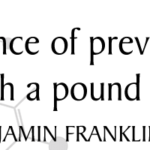Enforcing carve-out or “bad boy” guaranties in real estate loan agreements—especially in Illinois and other jurisdictions that favor lender protections—requires a strategic blend of contract clarity, trigger precision, and procedural discipline. Here’s how to do it effectively:
First, the guaranty must be clearly drafted, with carve-out events precisely defined. Courts have upheld full recourse liability even for seemingly minor breaches when the language was unambiguous. For example, in Bank of America v. Freed, the Illinois Appellate Court enforced full loan liability against a guarantor after the borrower contested a receivership appointment—because the guaranty explicitly made such contest a trigger.
Second, lenders should distinguish between loss liability and full loan liability. Loss liability covers actual damages from carve-out breaches (e.g. misapplication of rents), while full liability may be triggered by egregious acts like bankruptcy filings, fraud, or unauthorized transfers. Courts have sometimes pushed back on disproportionate enforcement—such as in ING Real Estate Finance v. Park Avenue Hotel, where a $278,000 unpaid tax bill did not justify enforcing a $45 million guaranty.
Third, enforcement hinges on procedural timing. Some jurisdictions require foreclosure to be completed before pursuing guarantors. Others allow simultaneous actions. Illinois generally permits parallel enforcement, but lenders should still confirm that the guaranty is supported by consideration, properly authorized, and not vulnerable to defenses like duress or revocation.
Fourth, lenders should monitor borrower conduct proactively. Violations of SPE covenants, failure to maintain insurance, or environmental liabilities can trigger carve-outs. But enforcement is strongest when the lender can show actual harm or risk to collateral value.
Finally, guarantors can negotiate protections like notice and cure rights, limited liability for technical breaches, and exclusions for uncontrollable events. A “zero-based” approach—starting with no carve-outs and adding only those truly necessary—can help avoid unintended exposure.
David Seidman is the principal and founder of Seidman Law Group, LLC. He serves as outside general counsel for companies, which requires him to consider a diverse range of corporate, dispute resolution and avoidance, contract drafting and negotiation, and other issues. In particular, he has a significant amount of experience in hospitality law by representing third party management companies, owners, and developers.
He can be reached at david@seidmanlawgroup.com or 312-399-7390.
This blog post is not legal advice. Please consult an experienced attorney to assist with your legal issues.
Photo Credit: 32 Facts about the movie Bad Boys – Facts.net














